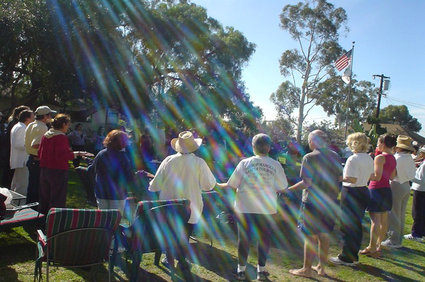In our fast-paced, high-tech digital world, it’s fascinating how many ancient scriptural disciplines are gaining new relevance as science catches up to spiritual beliefs.
Fasting, for instance, has been observed as a Discipline of Abstinence in many religious traditions, and is mentioned in both the old and new testaments. It was used as a way to grieve the death of a loved one, to cleanse the body and quiet the mind in preparation for holy days, or to atone for straying from one’s spiritual path. For centuries fasting has also been utilized as a way to raise consciousness and remain in a higher state of spiritual receptivity during retreats or vision quests.
“Renew yourselves and fast. For I tell you truly, that Satan and his plagues may only be cast out by fasting and by prayer.”
–The Essene Gospel
According to the Mayo Clinic, there’s contemporary validation for some of these ancient beliefs. Fasting has been proven to potentially be good for your heart, and change the way your body processes both sugar and cholesterol. Severely restricting food just one or two days a week can lower your bad cholesterol, and also help your body metabolize sugar more effectively.
This, in turn, helps prevent weight gain and the onset of diabetes, both of which can promote heart disease. (Always check with your medical doctor before starting a fast.)
A Discipline of Relationships, Forgiveness, likewise now is scientifically regarded as nourishing for the body, mind and spirit. People who can forgive, even if they don’t forget, can more easily release stress, tension and anxiety, and have lower levels of depression.
They are also more likely to avoid the toxic fallout of anger, which can drive up the risks for heart disease. A study by the American Medical Student Association even revealed the ability to forgive others reduced a person’s risk of substance abuse.
Charity, one of the Disciplines of Action, has a similar measurable benefit on every level. Giving to others not only reduces stress – it prompts the brain to start producing endorphins that produce what’s been dubbed the “helper’s high.”
Studies by the National Institute of Health revealed altruism triggered a “warm glow” effect by stimulating parts of the brain connected with pleasure, trust and social interaction.
Another benefit of compassionate action is that simply observing someone else being of service and helping out, studies have shown, triggers the desire in others to help. Researchers speculate this contagious compassion, which is hard wired in our brain, may have been a way for early members of a tribe to assist each other and assure the tribe’s survival.
Learn more about the benefits of these and other ancient spiritual disciplines with a stay at the Optimum Health Institute (OHI) in San Diego or Austin, Texas. Our caring team can help you achieve your mental, physical, emotional and spiritual goals for optimal health. Visit our website at www.optimumhealth.org , and call us at (800) 993-4325 to make your reservation.

